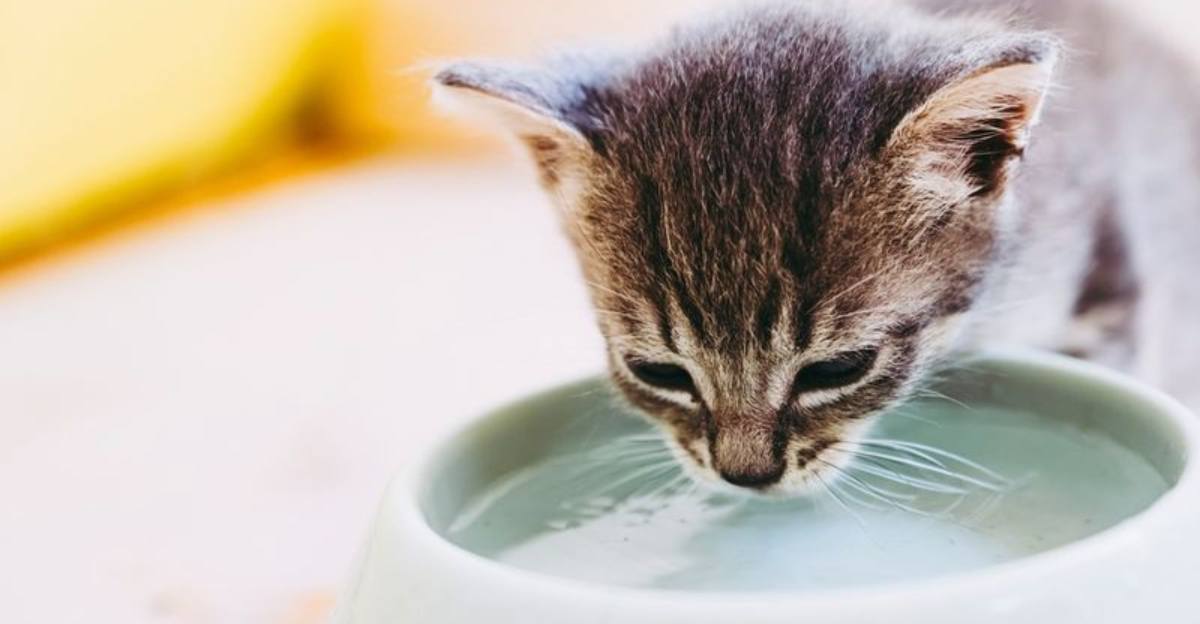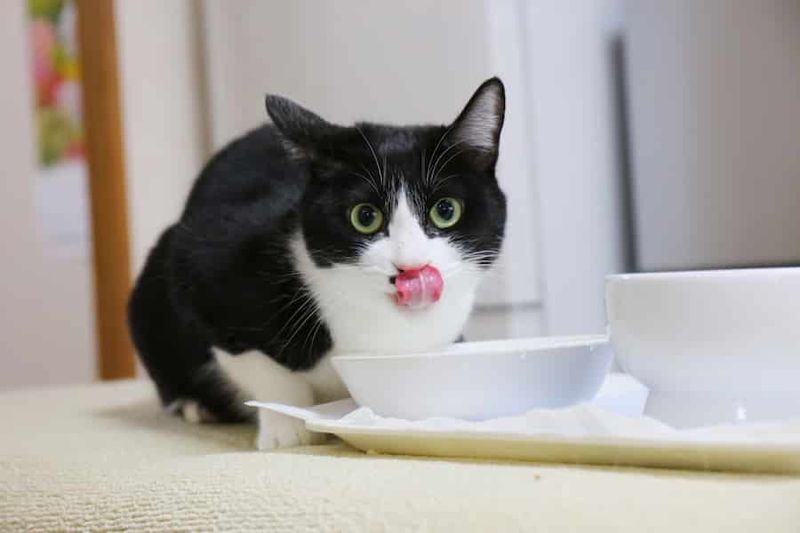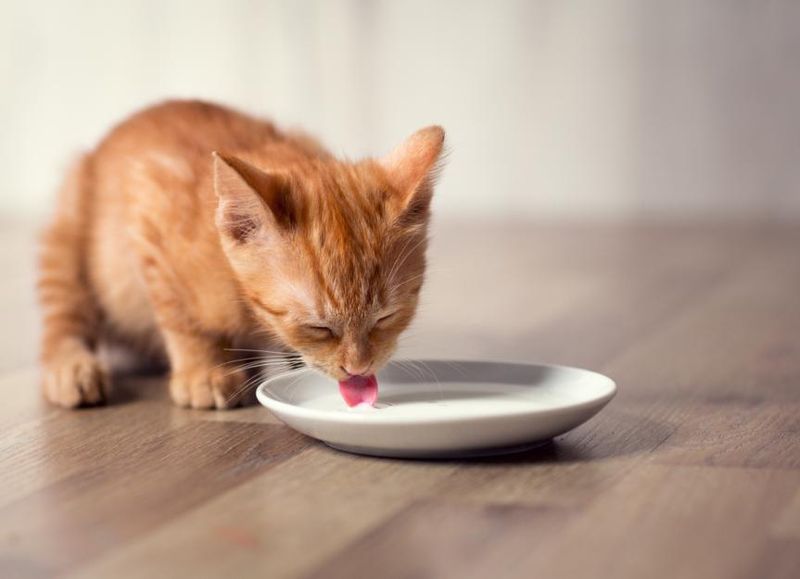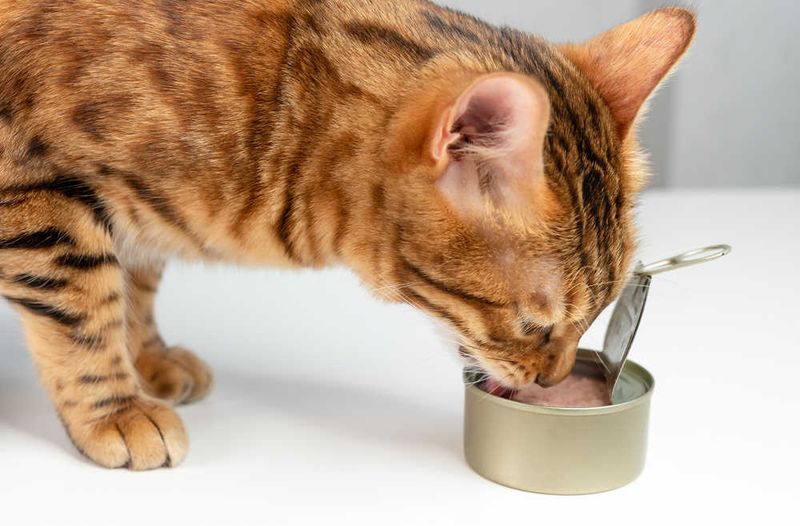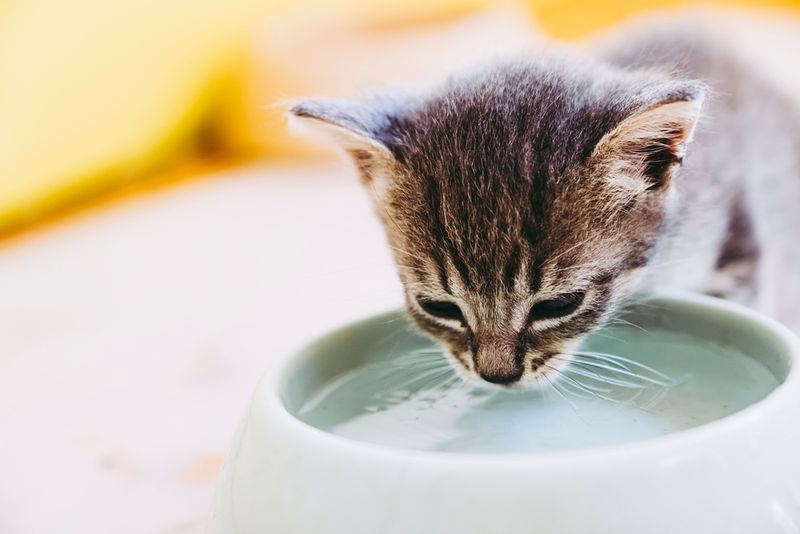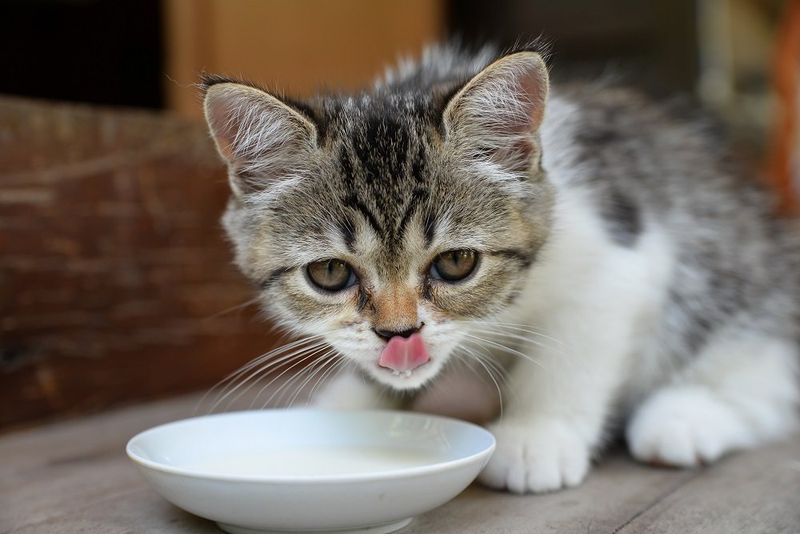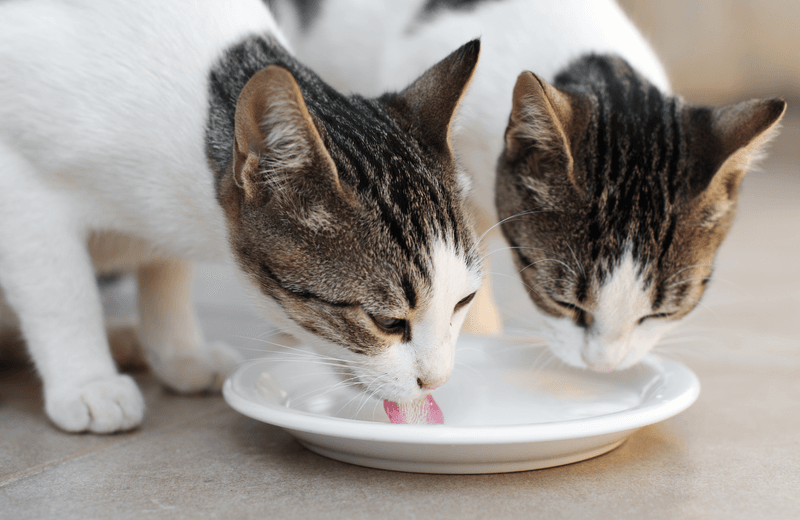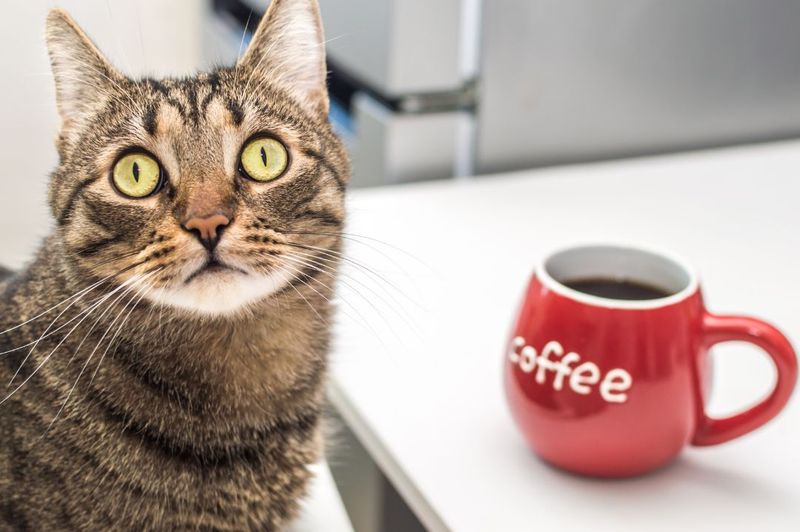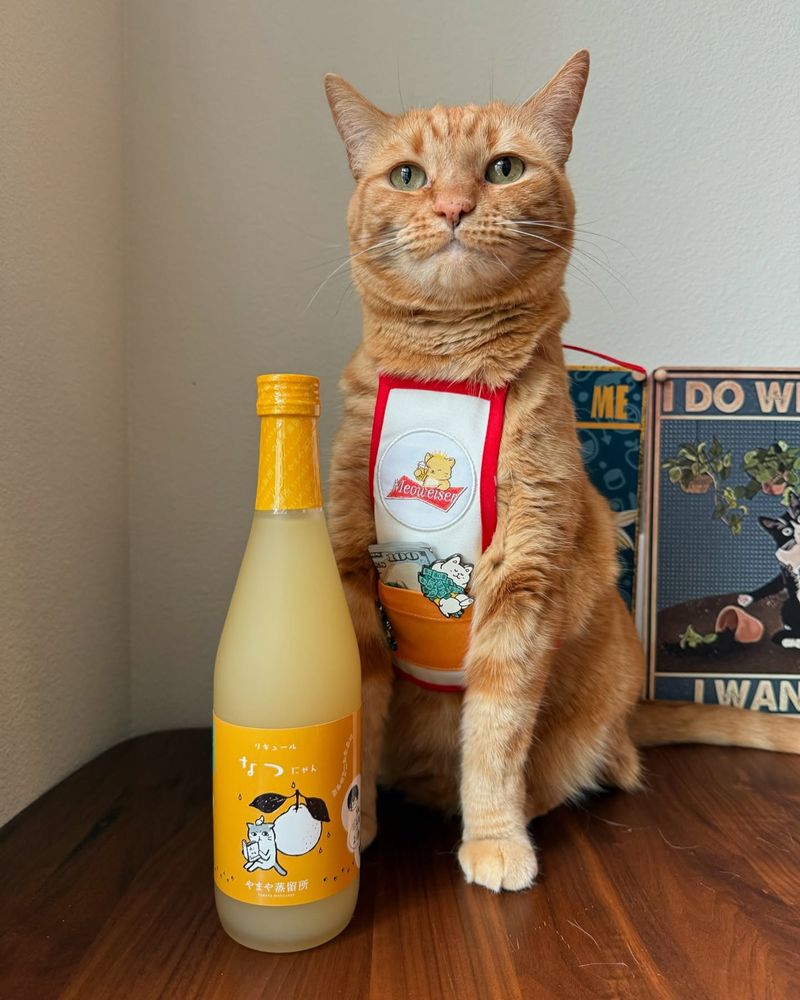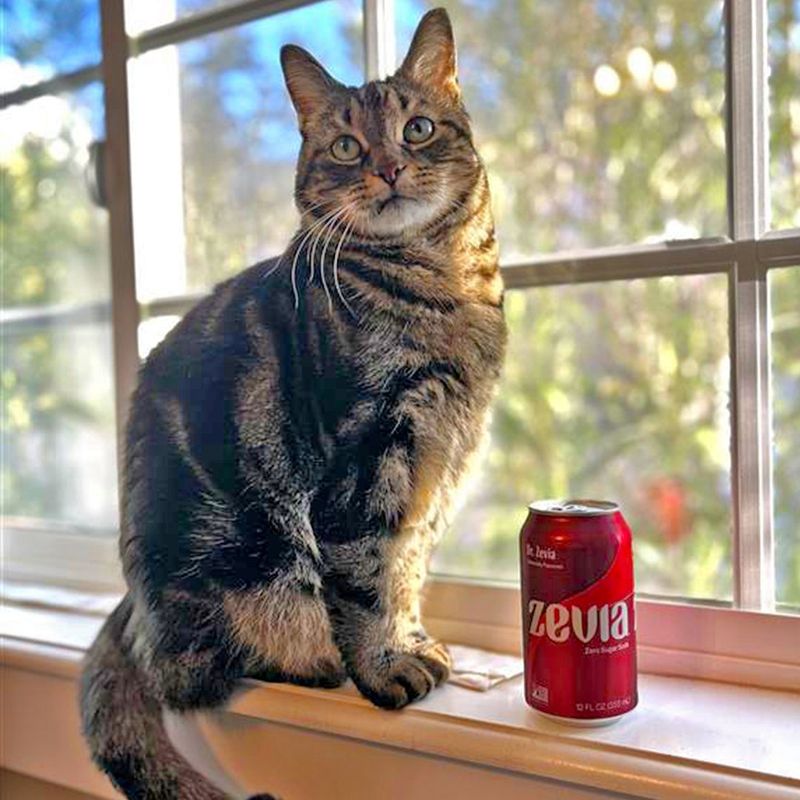📖 Table of Content:
Cats are known for their discerning taste when it comes to hydration, often choosing flowing water over still water in their bowls. This preference for moving water can be traced back to their wild instincts, as running water in nature is typically fresher and safer. However, many cat owners are curious about offering their pets more than just water and wonder what other drinks are safe.
While it’s essential for cats to have access to fresh water at all times, some liquids can be harmful or even toxic. Certain beverages that are safe for humans can cause significant health issues for felines, making it important to understand what is safe for them to consume. Knowing the potential dangers and benefits of offering different drinks is key to ensuring your cat’s well-being.
In addition to water, there are a few drinks that can be safely offered to cats in moderation. However, many popular drinks, including those enjoyed by humans, should be avoided at all costs. With a little knowledge, it’s easy to make informed choices about what to offer your cat and what to keep away from their food and water dishes.
1. Bone Broth
Homemade bone broth serves as a nutritious and appealing drink option for cats. Created by simmering animal bones for hours, this liquid contains beneficial minerals and collagen that support joint health. Serve it cooled and in small amounts.
The key is making cat-safe bone broth without onions, garlic, or excess salt – ingredients commonly found in store-bought versions but harmful to felines. The rich aroma often entices even the pickiest cats to take a sip.
For elderly cats or those recovering from illness, bone broth provides gentle hydration with a nutritional boost. Store extra portions in ice cube trays for convenient single servings.
2. Cat Milk
Special cat milk products differ significantly from regular cow’s milk. These formulations have been specifically designed with reduced lactose content to accommodate adult cats’ digestive systems, which typically lack sufficient lactase enzymes.
Available at pet stores and online retailers, commercial cat milk provides a safe occasional treat that many felines enjoy. The creamy texture and taste appeal to most cats without causing the digestive upset associated with regular dairy products.
Moderation remains essential – treat cat milk as exactly that: a treat, not a dietary staple. A small saucer once or twice weekly gives your cat something special without disrupting their regular nutrition or hydration habits.
3. Tuna Juice
The liquid from canned tuna packed in water (not oil) makes an irresistible occasional treat for cats. This flavorful juice contains natural fish oils and proteins that cats find absolutely tantalizing – few felines can resist its powerful aroma.
Dilute the tuna water with regular water to reduce sodium content while still providing that fishy flavor cats adore. The strong smell often encourages reluctant drinkers to increase their fluid intake, making it particularly useful for cats who need hydration encouragement.
Due to concerns about mercury and sodium levels, tuna juice should remain an occasional treat rather than a daily offering. A teaspoon or two mixed with water once weekly strikes the right balance between treat and health.
4. Fresh, Clean Water
Nothing beats the basics when it comes to keeping your cat hydrated. Fresh water should always be available throughout your home, ideally in multiple locations. Many cats prefer their water dishes away from their food.
Ceramic or stainless steel bowls tend to be better choices than plastic, which can harbor bacteria and sometimes give water an unpleasant taste. Consider a cat water fountain if your feline friend seems reluctant to drink from still water – many cats are naturally drawn to moving water sources.
Remember to wash water bowls daily and provide fresh water at least twice a day to ensure your cat stays properly hydrated.
5. Goat Milk
Raw goat milk contains less lactose than cow’s milk, making it easier for some cats to digest. The molecular structure of goat milk protein differs from cow milk, potentially causing fewer allergic reactions in sensitive felines.
Nutritionally rich with essential vitamins and minerals, goat milk provides beneficial probiotics that support gut health. The natural enzymes present may help cats process this milk more effectively than other dairy options.
Always introduce goat milk gradually, starting with just a teaspoon to monitor for any digestive response. While better tolerated than cow milk, not all cats can process dairy products of any kind, so watch carefully for signs of stomach upset before making it a regular treat.
1. Regular Cow’s Milk
Despite popular depictions in media, regular cow’s milk causes digestive distress for most adult cats. After weaning, cats naturally produce less lactase, the enzyme needed to break down lactose in milk. This lactose intolerance leads to uncomfortable symptoms including diarrhea, vomiting, and stomach pain.
The fat content in whole milk can also contribute to obesity and pancreatitis when consumed regularly. Even cats who seem to enjoy the taste may suffer the consequences hours later when digestive issues begin.
Some cats show more severe reactions than others, but veterinarians universally recommend against offering cow’s milk to felines. The potential health risks simply outweigh any momentary enjoyment your cat might experience.
2. Alcohol
Even tiny amounts of alcohol pose serious dangers to cats. Their small body size and unique liver metabolism make them extremely vulnerable to alcohol toxicity. Just a teaspoon can cause significant neurological damage in an average-sized cat.
Symptoms of alcohol poisoning in cats include vomiting, disorientation, difficulty breathing, tremors, and potentially fatal respiratory depression. The sweeter alcoholic beverages may seem appealing to curious cats, making vigilance essential during social gatherings where drinks are served.
Never leave alcoholic beverages unattended around pets, and immediately contact your veterinarian if your cat accidentally consumes any amount of alcohol. This requires emergency treatment and should be considered a life-threatening situation requiring immediate veterinary attention.
3. Caffeinated Beverages
Coffee, tea, energy drinks, and sodas containing caffeine create serious health hazards for feline companions. Cats process caffeine differently than humans, making even small amounts potentially toxic. Their nervous systems become overstimulated, leading to dangerous elevations in heart rate and blood pressure.
The symptoms of caffeine toxicity include restlessness, rapid breathing, muscle tremors, and in severe cases, seizures or collapse. No amount of these beverages is considered safe for cats to consume.
Be careful with unattended cups of coffee or tea that might attract a curious cat. Caffeine poisoning requires immediate veterinary attention, as it can cause lasting damage to your pet’s cardiovascular and nervous systems.
4. Citrus Juices
Citrus fruits contain essential oils and compounds that are toxic to cats when ingested. Orange, lemon, lime, and grapefruit juices all fall into this dangerous category. The oils in citrus can cause significant digestive upset and potentially damage the central nervous system.
Most cats naturally avoid citrus due to its strong scent, which they find offensive. This natural aversion serves as a protective mechanism, steering them away from these harmful substances. The bitter taste typically causes an immediate rejection response.
Beyond potential toxicity, the high acidity in citrus juices irritates the delicate digestive tract of felines. Should your cat accidentally consume citrus juice, contact your veterinarian for guidance, especially if vomiting, diarrhea, or unusual behavior occurs.
5. Sugary Drinks
Sodas, fruit juices, and sports drinks packed with sugar have no place in your cat’s diet. Cats cannot taste sweetness, so these beverages offer no enjoyment while potentially causing significant harm. The high sugar content can lead to obesity, dental problems, and diabetes in felines.
Artificial sweeteners present additional dangers, especially xylitol, which is highly toxic to pets. Even small amounts can cause rapid insulin release, resulting in dangerous drops in blood sugar levels.
The carbonation in sodas can also cause gastrointestinal discomfort and bloating. Your cat’s digestive system simply isn’t designed to process these human beverages, making water the superior choice for keeping your feline friend properly hydrated and healthy.
